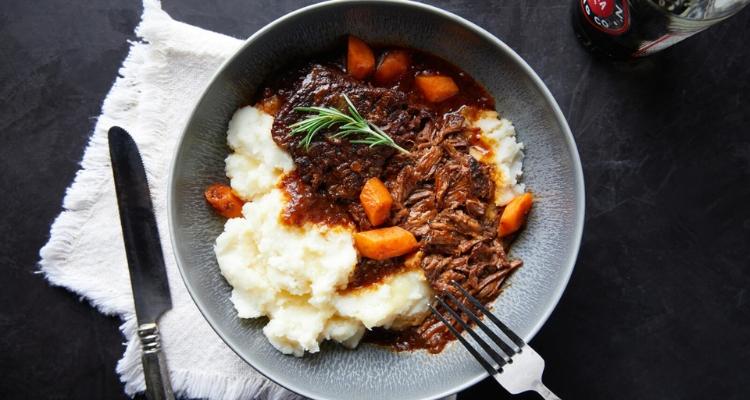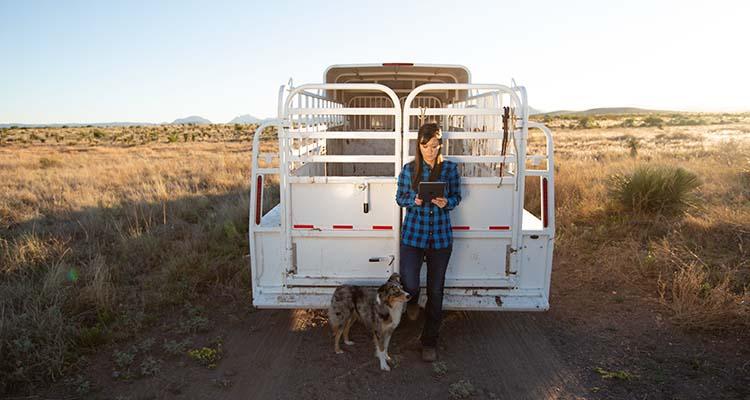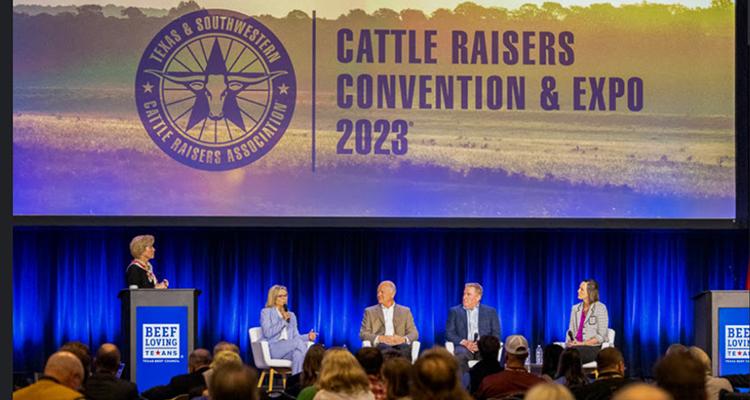November 03, 2022
Beef: Good & Good For You - With Molly
By: Molly McAdams, TBC Executive Vice President
When I was growing up, my mom used to tell us kids that our food was “good and good for you” in a way that was definitive, though unconvincing at times. Liver and onions? Good and good for you. Celery and peanut butter? Good and good for you.
We rarely went out to eat, so we ate what mom put on our plates. She controlled our diet and portion sizes. She also told us the meat made the vegetables taste better. We ate a lot of roasts for supper, and she was right. If we didn’t like the peas, we mixed them with the roast and potatoes because not eating them was out of the question!

The beef industry is still hard at work reassuring consumers everywhere that beef is – you guessed it – good and good for you. I recently had the pleasure of visiting with Dr. Shalene McNeill, Executive Director of Nutrition Science, Health and Wellness at NCBA and former Texas Beef Council (TBC) staff member, to discuss our industry’s investment in nutrition research, the role TBC Directors have played and the impact it’s had over the years.
Dr. Shalene McNeill, Executive Director of Nutrition Science, Health and Wellness
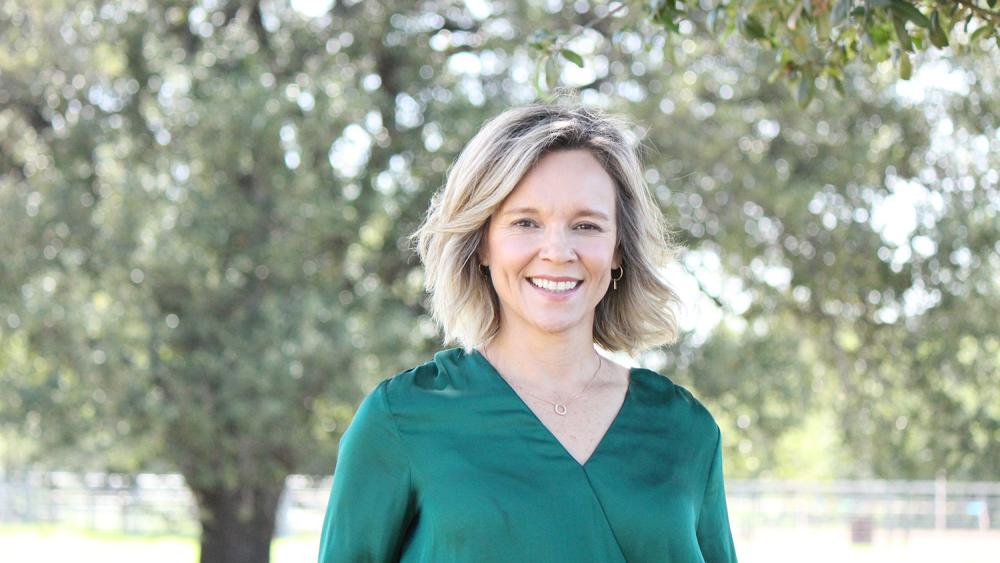
Scientists and staff, on behalf of the Beef Checkoff, are constantly combing through the latest hot topics to find out what is going on in nutrition research that should be a consideration for beef. At the end of the day, we have real people wondering how often they can eat beef or how much they need to fuel their bodies. And those are practical questions the Beef Checkoff can answer.
Twenty or even thirty years ago, everyone was concerned about fat and carbohydrates. Over the past few years we have seen more emphasis on protein research, and Texas roots can be credited to a lot of today’s elevated conversations about the topic.
TBC had board leaders at the time, including physician Dr. Dick Sherron, who were deeply interested in nutrition. Dr. Sherron began talking about older, frailer Americans and how protein helps build muscles. We formed a discovery symposium with the world's leading protein experts and said, "We have a product that's rich in protein, and no one's talking about it. Is there a research opportunity?"
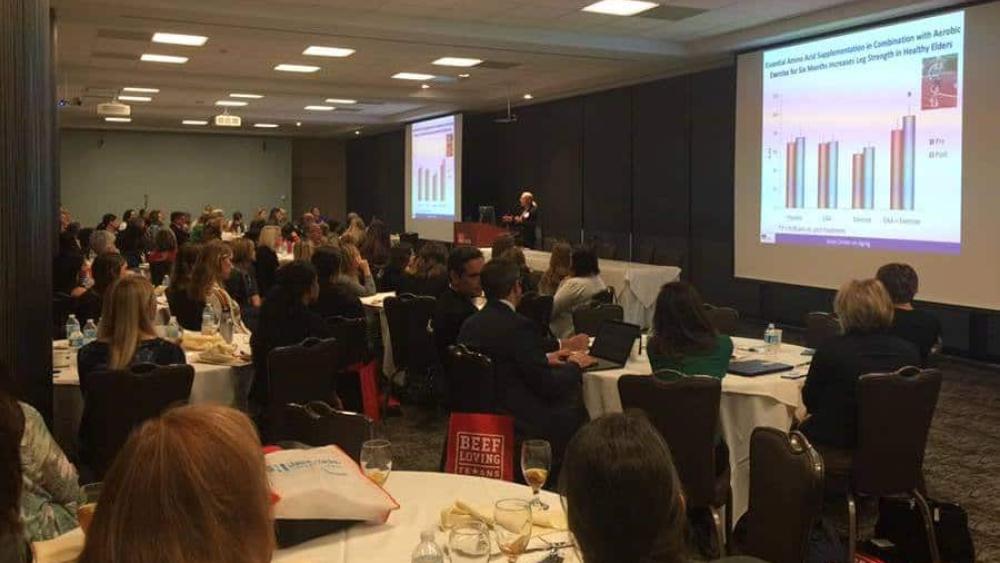
Those experts invited 40 of their scientist peers to a protein research summit and re-energized protein research. We did that twice over a series of several years and suddenly, protein is on the research roadmap in America. Before long, consumers started to notice our efforts because the media was covering it. Protein science is now central to the nutrition and health discussions we’re having today. The Beef Checkoff and producer voices were behind that momentum, and it started with supporting research.
Strong board leadership is so critical in grounding us to balance scientific questions with what is happening in real life. I can remember putting research priorities in front of producers and them saying, "I’m not a research expert, but I can tell you diabetes is an important topic in my community and we need to look at it." As a staff person, we really rely on our board leadership to give that direction.
In 2005, we became aware of a major report that was coming out on the relationship between diet – including red meat – and cancer. It used to feel like we were always on the defensive about the topic. As staff, we knew we needed to understand every morsel of evidence. So we went to our producers requesting to fund a research grant to look into that.
We had no idea whether the potential findings would be positive or negative. But a producer committee member from Nebraska encouraged us at the time by saying, "Why else would we fund research? This is why we need to do the research, to find the outcome." That meeting launched our research to better understand the relationship between diet and cancer.
We continued to fund these studies and now have the World Cancer Research Fund advising that it is a risk to cut back too much on red meat because of the nutrients it provides (source: The Lancet). From our bold, initial exploration into research on meat and cancer, we've seen that evidence soften over time and lead us to new research investments we hope will continue providing clearer direction on beef's role and impact on health.
The Beef Checkoff is evidence-based and continues taking on tough topics. It’s amazing that when we take a step back, it’s clear we would not have adequate research investments being made to solely understand the benefits of beef’s role in health without it.
—
I’m proud that, in Texas especially, eating and preparing beef is a huge part of our social fabric. We have this nutritionally dense foundation for great social engagements, whether it's tailgating, or preparing steaks on holiday weekends. And, thanks to experts like Shalene and producer leaders who’ve championed Beef Checkoff-funded research over the years, we can feel even better about continuing to choose beef.
